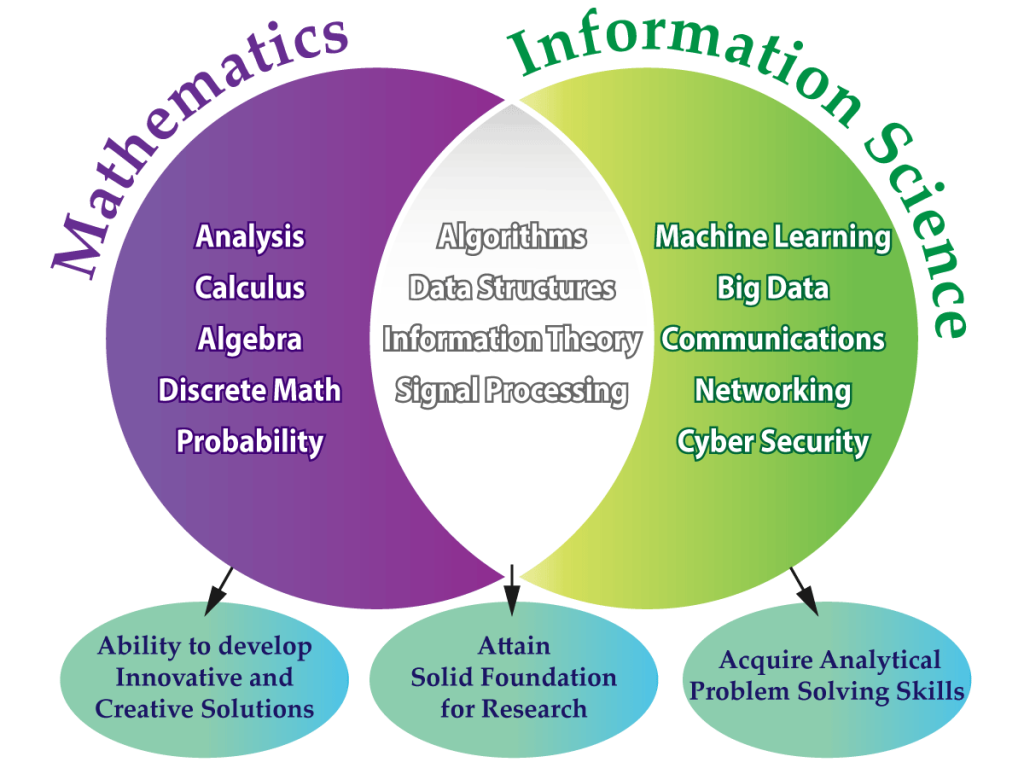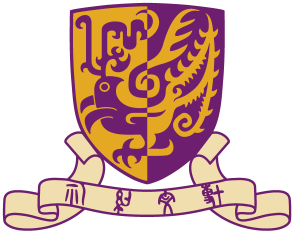Overview
Mathematics and Information Engineering (MIEG) is a rigorous and selective programme designed to equip students with solid fundamental knowledge in mathematics, information and computer sciences.
The following shows a graphical presentation of the MIEG programme contents and its outcomes:

Graduates from this programme routinely go for postgraduate studies at the top universities or pursue independent research or careers in various sectors.
MIEG is an interdisciplinary programme jointly offered by the Faculty of Science and the Faculty of Engineering, with the Department of Mathematics and the Department of Information Engineering responsible for its management and actual running. The students of this programme will have an exposure to both mathematical rigour (the math classes are shared with Math majors) and engineering intuition in the information and computer sciences.
Some of Our Graduates

YU Tingyang
(2023)
PhD in Communication and Computer Sciences at EPFL

LIU Yinyin Jessica (2022)
MSc in EECS at UC Berkeley

WOO Pui Yang Anna (2022)
PhD in CSE at University of Michigan

HEGAZY, Mahmoud (2022)
PhD in Data & Artificial Intelligence at Institut Polytechnique de Paris
Programme Objectives and Outcomes
Our Programme aims to train our students to have a good understanding of fundamental knowledge and objectives. The following achievements are expected:
- The graduates will have had solid mathematical and engineering knowledge for further studies at the graduate school level or for performing independent research work in engineering, industry, or economic sectors.
- The graduates will have the skills to excel in professional positions in organizations that research, design, develop, deploy, or employ information systems/networks/services.
- The graduates will have acquired the ability to continue their personal development through professional studies and life-long learning, and are already acquainted with the benefits of interdisciplinary learning.
Learning outcomes define the graduate capabilities needed to achieve the programme objectives stated. The following lists the 7 learning outcomes of the programme:
- Foundations:
Students will have gained an understanding of the fundamentals of mathematics, science, and engineering and be able to apply them to the research, design, analysis, and implementation of engineering systems.
- Breadth:
Students will have gained exposure to and understand the impact of other science and engineering areas as well as non-engineering areas such as social, economic, environmental, health and safety issues.
- Depth:
Students will have possessed sound knowledge in mathematical analysis, linear algebra, communications and networking, and software development.
- Curiosity:
Students will have possessed the ability to appreciate the value of and develop the ability for lifelong learning.
- Creativity:
Students will have developed problem-solving skills and the ability to innovate new engineering solutions.
- Integrity:
Students will have gained an understanding of the importance of professional, social, and ethical responsibilities in engineering practice.
- Communication Skills:
Students will have developed the skills to communicate effectively both orally and in writing.



